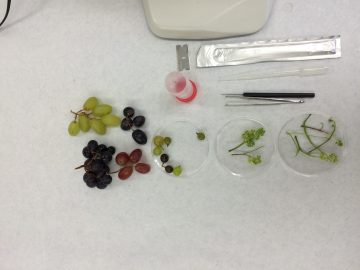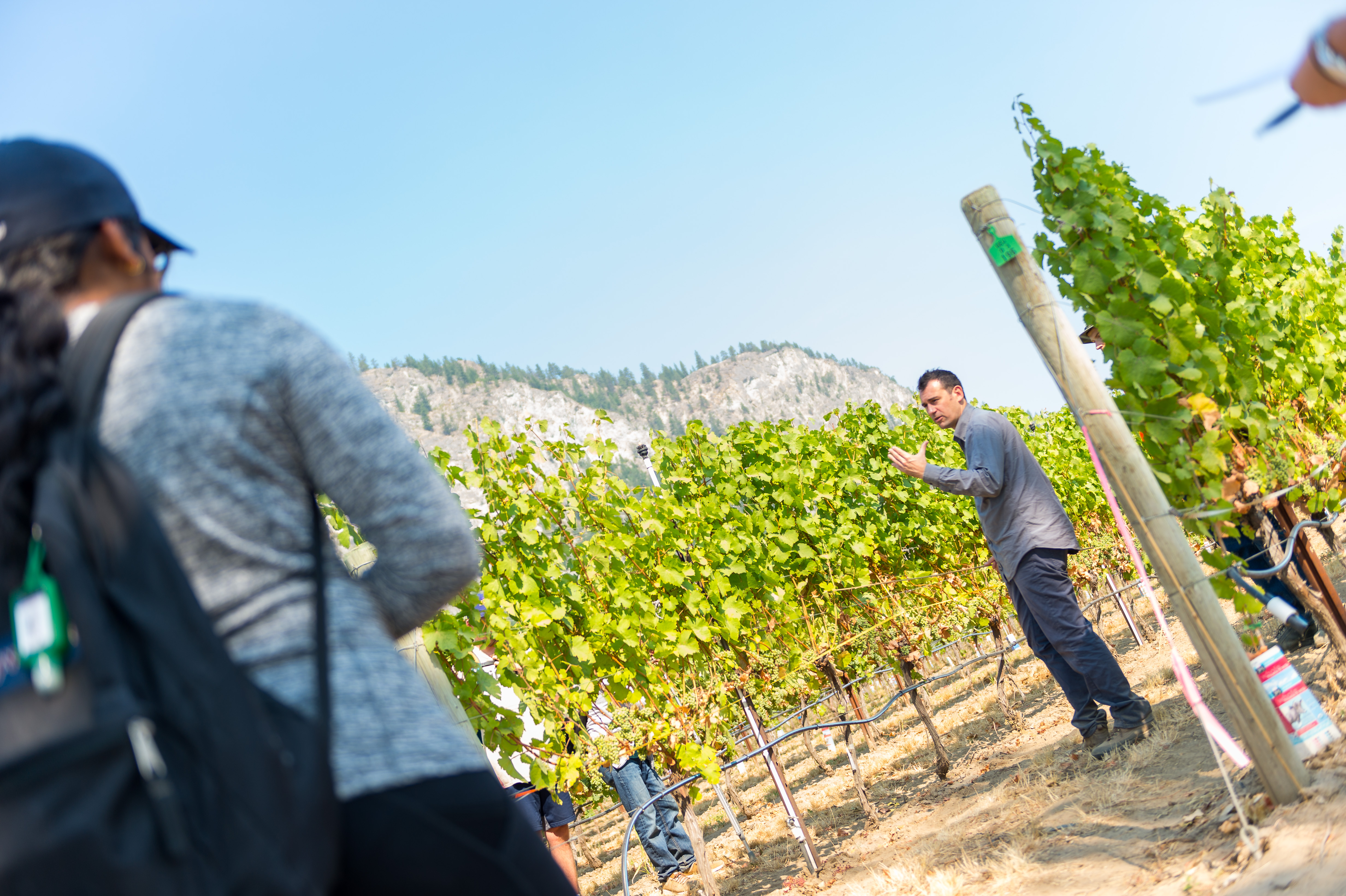 APBI 442/PLNT 542 – Grapevine and Berry Crop Biology
APBI 442/PLNT 542 – Grapevine and Berry Crop Biology
Grapes are one of the most economically-important fruit crop worldwide. In British Columbia and in Canada, the grape and wine industry has grown significantly in the past few decades, gaining both domestic and international recognition. Besides grapes, British Columbia is a major producer of other berry crops such as blueberry, cranberry, and raspberry.
The goal of this course is to provide students with a deep understanding of grapevine biology and of the major biological features of other important berry crops for British Columbia such as blueberry, cranberry, and raspberry. This three-credit course explores in depth the most important aspects of grapevine genetics, genomics, morphology, and physiology and introduces the major genetic and genomic features of blueberry, cranberry and raspberry.
FOOD 521 – Advances in Food Biotechnology

FOOD 521 is a topical course intended to provide an advanced understanding of key concepts and current applications of biotechnology in the production and processing of foods. The course utilizes lecturing, student-directed presentations and discussions to cover topics on recent advances in important areas of food biotechnology from an international perspective. The topics include genetic engineering, genome analysis, functional foods, bioconversion of food materials, as well as improvement of food quality and food safety.
 APBI443 UBC-V/BIO420 UBC-O– Field Study of Wine Grape Production
APBI443 UBC-V/BIO420 UBC-O– Field Study of Wine Grape Production
This field course explores the major viticultural issues related to grape and wine production. These issues include: origin of the major wine grape varieties and rootstocks, morphological features of the grapevine, major training systems and canopy management strategies in the Okanagan Valley, berry composition in relation to wine quality, and the impact of terroir on grape and wine quality. Field trips and laboratory classes are a core part of the course and provide hands on sessions on the topics described above.